Overview
The NeuroOncology Fellowship at Mayo Clinic in Jacksonville, Florida, is a comprehensive training program designed to equip you with a broad knowledge base, clinical expertise, and sound judgment in neuro-oncology. You will acquire skills and engage in projects related to clinical, basic, translational, and outcomes research in the field. The program prepares you for successful careers in both academic and community practice settings, fostering a commitment to lifelong learning and inquiry.
Unique opportunities include:
- Individualized curriculum: This fellowship can be tailored to your specific needs and career goals.
- Outstanding clinical training: Comprehensive clinical training includes subspecialty experience and multidisciplinary approaches in managing patients with neurological cancers, with access to the extensive resources of the Mayo Clinic Comprehensive Cancer Center, consistently ranked among the top cancer centers in the U.S. Elective rotations at Mayo Clinic’s campuses in Rochester, Minnesota, and Phoenix, Arizona, may be arranged.
- Abundant research opportunities: Extensive opportunities to work in translational neuro-oncology and clinical research with access to a comprehensive biobank with clinical correlatives.
hospital in Florida (U.S. News, 2025-26)
year program
trainee accepted annually
Accreditation, certification, program history
Accreditation
This program is accredited by the United Council for Neurologic Subspecialties.
Certification
After successfully completing the program, you are eligible to take the Neuro-oncology Certification Exam offered by the United Council for Neurologic Subspecialties.
Program history
The NeuroOncology Fellowship at Mayo Clinic’s campus in Jacksonville, Florida, will accept its first fellow to begin training in July 2026. We anticipate one trainee will complete this program annually.
Application process
Positions
One position is available on a competitive basis each year in the NeuroOncology Fellowship at Mayo Clinic’s campus in Jacksonville, Florida. Competitive applicants will have demonstrated a commitment to a career in neuro-oncology.
Qualifications
Applicants for the NeuroOncology Fellowship program must have completed an accredited neurology, neurosurgery, or medical oncology training program in the U.S. or abroad.
Also see general admissions requirements.
How to apply
Mayo Clinic School of Graduate Medical Education does not process printed applications to this program. You must apply through SF Match, a matching program application service.
Mayo's academic year begins in July. You must submit a completed application form and all required documentation no later than nine to 12 months before the program begins.
Complete the following steps to apply:
- Visit the SF Match website to register as an applicant.
- Create an account to begin the online Application for Admission
- All applications to Mayo Clinic School of Graduate Medical Education programs must include these application materials.
- After submission, view the required Supplemental Items and Documents
- Upload each required item in the Supplemental Items section (if applicable)
- Complete the Recommendation Request section (if applicable)
Appointments are made through the Neuro-Oncology Match coordinated by SF Match and sponsored by the Society for Neuro-Oncology (SNO).
Applicants considered for acceptance will be invited to visit Mayo Clinic for a personal interview with the program director and selected faculty. Interviews are typically conducted between March and April each year.
Curriculum
Clinical training
The majority of your time as a fellow is spent in an outpatient setting evaluating adult patients afflicted with various brain/spine tumors as well as complications of therapies.
You will also engage in discussions regarding diagnosis, prognosis, and treatment plans with patients and their families. The continuity clinic allows our fellows to have clinic time for patients follow-up.
Rotation blocks
| Rotation | Blocks |
|---|---|
| NeuroOncology Clinic | 1-2 |
| Medical hematology/oncology | 3 |
| Neuropathology | 4 |
| NeuroOncology Clinic | 5 |
| Neuroradiology | 6 |
| NeuroOncology Clinic | 7 |
| Neurosurgery | 8 |
| NeuroOncology Clinic | 9-10 |
| Radiation oncology | 11 |
| Pediatric NeuroOncology | 12 |
| NeuroOncology Clinic | 13 |
Rotation descriptions
NeuroOncology Clinic: Evaluation and management of neuro-oncology patients within the NeuroOncology clinic.
Medical hematology/oncology: Exposure to solid and hematologic malignancies that metastasize to the central nervous system as well as the neurologic complications of cancer and its therapy.
Neuropathology: In-depth, evaluations of the histology and molecular classifications of CNS tumors, as well as ancillary studies used diagnostically.
Neuroradiology: Understand the utilization of imaging studies in the diagnosis, evaluation and management of CNS tumors.
Neurosurgery: Work directly with neuro-oncology-dedicated neurosurgeons regarding the evaluation and management of patients with CNS tumors.
Radiation oncology: Gain understanding to the use of radiation for the treatment of CNS tumors and the different approaches/technologies/side effects.
Pediatric NeuroOncology: Work at Nemours in the evaluation and management of pediatric patients with CNS tumors.
Didactic training, conferences, electives
Didactic training
- Continuity clinic: five half days per week
- Hospital consults for neuro-oncology: two to four hours per wee
- No call services
Conferences
As a trainee, you will have the opportunity to participate in a rich variety of clinical conferences in the Department of Neurology.
- Weekly Neuroscience Conference
- CNS Tumor Board
- NeuroOncology Research Meeting
- Cancer Center Grand Rounds
- Neurosurgery Grand Rounds
- Journal Club
- Weekly dedicated NeuroOncology Fellowship didactics
Electives
Elective time is available by your choice, depending on your career goals and it would be an individualized decision.
Research opportunities
Mayo Clinic is a premier site for the conduct of clinical trials involving the use of new prescription drugs, combination therapies, rescue treatments and novel therapeutic agents. You are expected to participate actively in clinical trials that enroll patients in the early stages of their disease, as well as those that enroll progressive patients.
You will participate in these trials as an examining physician and gain experience in the use and interpretation of clinical outcome measures. You are expected to participate in weekly neuro-oncology seminars to review research progress and to interact with other research members.
There are ample opportunities to be involved in translational and clinical research, which can be tailored to an individual’s career goals.
Evaluation
To ensure that you acquire adequate knowledge and develop your technical skills, your performance is monitored carefully during the course of your program training.
At the completion of each rotation, you are evaluated by the faculty to whom you were assigned. This is accomplished through Mayo Clinic's Residency Management System, MedHub. MedHub is linked to the six core competencies identified by the Accreditation Council for Graduate Medical Education (Patient Care, Medical Knowledge, Interpersonal Skills and Communication, Professionalism, Practice-Based Learning and Improvement, and Systems-Based Practice).
Completed faculty evaluations are reviewed by the program director, who assigns a pass/fail grade based on the scores and comments of the faculty member. Upon approval of the evaluation by the program director, the evaluation immediately becomes available electronically to you in the MedHub system.
Belonging
At Mayo Clinic, we foster an inclusive working environment and embrace the diversity of all our trainees, faculty, staff, and patients. Our Office of Belonging offers tremendous resources to support our mission of maintaining a welcoming atmosphere for all our employees, including our learners. We strive to provide culturally appropriate care and do our part to reduce healthcare disparities.
/0x0:512x512/prod01/channel_2/media/studio-sites/mccms-reference-guide/512X5121573348_3801872_0024-(1).jpg)
Video: See yourself at Mayo Clinic
5:33
From the program director
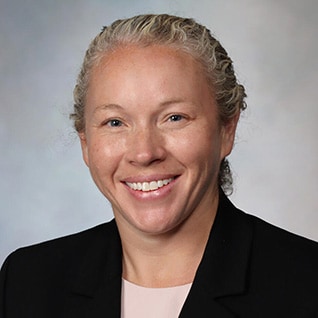 With over 150 years of history, including more than 30 years in Florida, Mayo Clinic is an excellent choice for training. Our Florida campus is a distinguished academic medical center that excels in patient care, research, and education. It has been recognized as one of the safest teaching hospitals in the U.S. and has received numerous prestigious awards for quality and patient safety.
With over 150 years of history, including more than 30 years in Florida, Mayo Clinic is an excellent choice for training. Our Florida campus is a distinguished academic medical center that excels in patient care, research, and education. It has been recognized as one of the safest teaching hospitals in the U.S. and has received numerous prestigious awards for quality and patient safety.
We are proud to have a diverse and accomplished team of physicians and educators, many of whom hold national and international reputations. Because Mayo Clinic attracts patients from across the globe, our fellows encounter a wide range of intriguing pathologies while also addressing common conditions.
Mayo Clinic Hospital and the outpatient practices, including the Mayo Clinic Cancer Center, operate under the same not-for-profit organization. This structure promotes interdisciplinary collaboration and provides access to extensive resources within a supportive and close-knit environment. As we strive to advance medical science, we remain committed to our core value: "The needs of the patient come first."
We are looking for bright, motivated, and dedicated physicians who are eager to learn, contribute to scientific advancements, and build lasting friendships and collaborations.
We invite you to explore our program further and consider joining us on this rewarding journey.
Wendy Sherman, M.D.
NeuroOncology Fellowship Program Director
Department and faculty
Mayo Clinic's Department of Neurology is one of the largest and most comprehensive neurological practices in the world. It includes more than 200 subspecialized experts trained in epilepsy, movement disorders, dementias, stroke and cerebrovascular diseases, neuro-oncology, and many more.
Mayo Clinic physician-scientists collaborate with researchers worldwide, contributing to advances in medicine that improve neurological care for people everywhere.
Mayo Clinic's neurological clinical opportunities are rich and varied, offering you the opportunity to see both common and unusual neuro-oncology cases.
Meet the faculty
One of the greatest advantages of training at Mayo Clinic is the approachability, accessibility, and collegiality of the faculty. In addition to caring for patients in clinical practice, Mayo Clinic's faculty is committed to teaching and facilitating the growth of medical knowledge. You work closely with these individuals throughout your training in the Neuro-Oncology Fellowship.
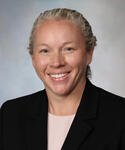 |
Wendy Sherman, M.D.Program Director Interests: Primary brain tumors, leptomeningeal metastases, translational research |
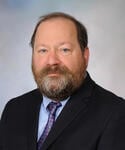 |
Steven Rosenfeld, M.D., Ph.D.Interests: Molecular motor targeting, enhancing the efficacy of other cytoskeletal targeting therapies, approaching glioblastoma heterogeneity form a therapeutic perspective View full profile |
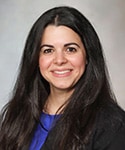 |
Christine Cordova, M.D.Interests: Molecular tumor testing, biomarkers of disease, novel therapies for cancer View full profile |
Wellness initiatives
As a trainee, your physical and mental health are priorities to Mayo Clinic and the department. Trainees have access to several resources to promote well-being, as well as time off clinical duties to attend appointments.
- Fitness centers
- Groups on campus
- Well-being
Fitness centers
 Mayo Clinic residents or fellows can experience 24/7 free access to the Bill Hewitt Employee Wellness Center — opened in the summer of 2024 and spans 6,700 square feet with modern cardio machines, weight machines, free weights, a studio for live classes, and includes showers and locker rooms for convenience.
Mayo Clinic residents or fellows can experience 24/7 free access to the Bill Hewitt Employee Wellness Center — opened in the summer of 2024 and spans 6,700 square feet with modern cardio machines, weight machines, free weights, a studio for live classes, and includes showers and locker rooms for convenience.
Additionally, residents or fellows at our three campuses get discounted membership fees to area gyms. In Jacksonville, Florida, residents and fellows can obtain an exclusive discount with the YMCA (several locations).
Groups on campus
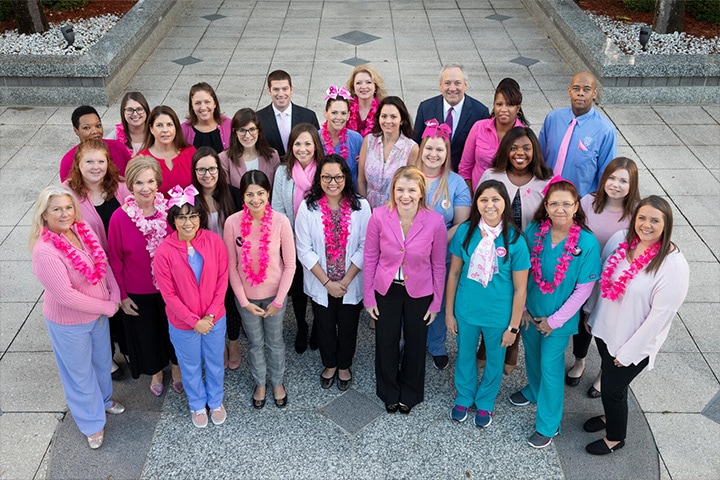
Opportunities to join a variety of groups on campus provide regular social activities and can help enhance your training while connecting with a broad group of peers.
Trainees will have the opportunity to join a Mayo Employee Resource Group (MERG) at any time during their training program. Mayo Employee Resource Groups (MERGs) are employee-led affinity groups to promote belonging, increase cultural awareness, and foster an environment of respect and inclusivity. Any Mayo Clinic employee can join a group of interest and choose their level of involvement
Well-being
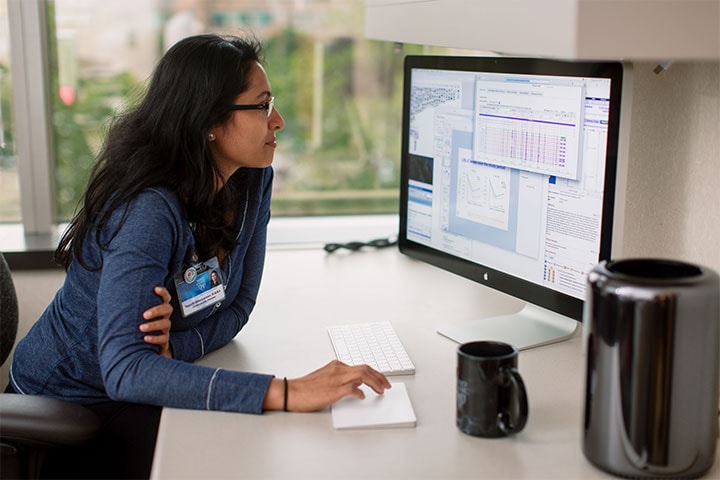 The Office of Academic Support and Well-Being provides resources to promote academic, emotional, social, cognitive, financial, and physical well-being. Career and academic services include academic advising, peer tutoring, and accommodations for learners with disabilities or health conditions. Mental health services, counseling, interview practice, and a variety of enrichment sessions on topics like budgeting, resiliency, and stress and burn-out are also available through the Academic Support and Well-Being office.
The Office of Academic Support and Well-Being provides resources to promote academic, emotional, social, cognitive, financial, and physical well-being. Career and academic services include academic advising, peer tutoring, and accommodations for learners with disabilities or health conditions. Mental health services, counseling, interview practice, and a variety of enrichment sessions on topics like budgeting, resiliency, and stress and burn-out are also available through the Academic Support and Well-Being office.
More from Mayo Clinic School of Graduate Medical Education
/0x0:512x512/prod01/channel_2/media/mccms/content-assets/academics/residencies-and-fellowships/3319834_0363-512X512.jpg)
Choosing Mayo Clinic
/0x0:512x512/prod01/channel_2/media/mccms/content-assets/shared-documents/campus-FL-Jax_Davis_Bldg_Mar2003_R-pic-tile.jpg)
Jacksonville, FL
Campus and community
/0x0:512x512/prod01/channel_2/media/studio-sites/mccms-reference-guide/512X5121676671_3824027_0010_C.jpg)
Stipend and benefits
Mayo Fellows Association (MFA)
The Mayo Fellows Association (MFA) offers a peer and social support network for residents and fellows and their families with social events, athletics, and advocacy. The MFA also holds an annual resident and fellow appreciation event open to all trainees with complimentary massages, stress-reducing activities, and social support.
/282x0:1407x1125/prod01/channel_2/media/mccms/content-assets/academics/residencies-and-fellowships/neuro-oncology-fellowship-florida/1635694-3894291-0025.jpg)
/0x0:440x220/prod01/channel_2/media/mccms/content-assets/campus-amp-community/florida/440X220_sidebar-mayo-clinic-jacksonville-fl-shu244045420.jpg)